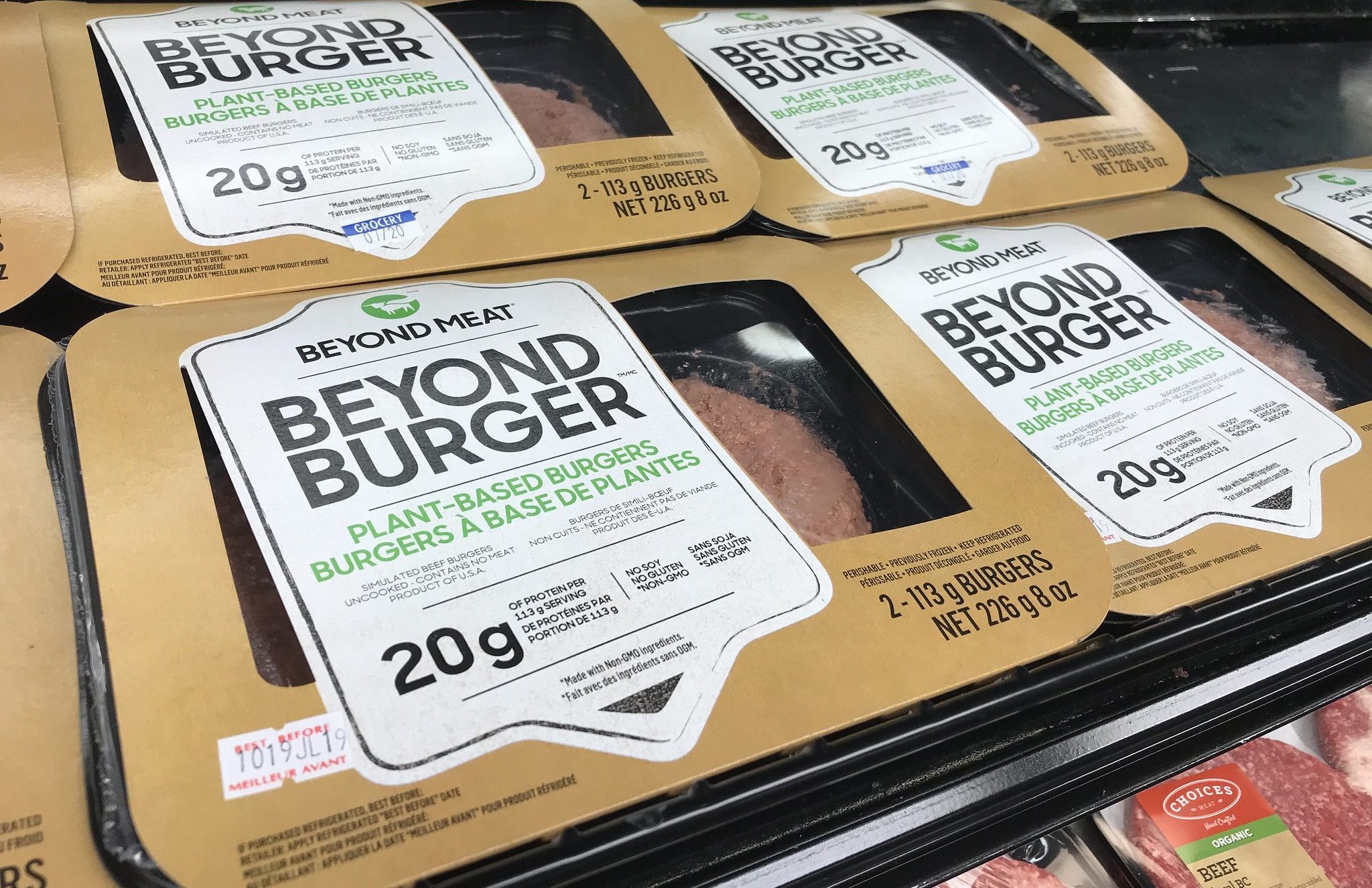Plant-Based Meat: The Past, Present, and Future

Today it’s nearly impossible to visit a restaurant, grocery store, or even fast-food chain without seeing some sort of plant-based meat/vegetarian offering. Whether that be a meat-less take on a traditional dish, or a product that acts as a substitute for meat, it’s clear that this trend has exploded in the past few years. But plant-based meats aren’t necessarily a new product, in fact they’ve been around for decades, so why have they suddenly seemed to take off?
On our podcast, Just a Taste, we recently spoke with Christopher Doering, a Senior Editor at Food Dive, to discuss his article “Plant-based meat survivor: Which brands will stay on the shelf?” We discussed the past, present, and future of this trend, as well as what brands need to do in order to stay relevant in an increasingly over-saturated market.
From Veggie Burgers to Meat-Substitutes
Although plant-based meat has only recently been thrust into the mainstream, many brands have been manufacturing these products for decades. In the past, brands such as Morningstar Farms, Gardein and Gardenburger had been the big players within the market. Although these brands are well-known, they previously had a very niche consumer base. They had primarily marketed themselves as meat-substitutes for vegetarians and vegans.
Recently, we’ve seen an influx of brands producing plant-based burger options (i.e. Beyond Burger and the Impossible Burger). Although plant-based burgers are not a new concept, it’s important to note the difference between these new products and what had previously been offered. In the past we would refer to them as “veggie burgers”. These items were plant-based burgers that didn’t necessarily mimic the taste or texture of meat, but rather were just substitutes that were clearly made from vegetables and grains.
However, the market has now shifted to creating products that mimic the taste, smell, and texture of traditional meat. These products are less focused on appearing to be a veggie burger, but rather recreate the experience of cooking/consuming traditional burgers.
Adapting to a Changing Market
So, what has changed in consumers to prompt brands to develop plant-based products that mimics meat? First and foremost, vegetarian (and vegan) diets have become more popular. People are less interested in consuming meat than ever before. Even those with a carnivorous diet are lowering their intake of meat, often referred to as “flexitarians” – those who focus on eating healthy plant proteins and consume meat only in moderation.
However, one of the bigger reasons as to why people are turning to plant-based diets is for sustainability. In the past few years it has become more well-known that the meat production industry has a huge negative impact on the environment. According to Scientific American, “the production, processing and distribution of meat requires huge outlays of pesticides, fertilizer, fuel, feed, and water while releasing greenhouse gases, manure and a range of toxic chemicals into our air and water.”
With this in mind, consumers view plant-based products as generally better for the environment. According to Doering, “Consumers really care about how their food is produced, where it’s produced, and what goes into their food.” Although there is still some debate as to whether these new plant-based meats are a healthier option, the main selling-point is that they are generally net-positive for their lower impact on the environment.
What’s Next?
With a new plant-based burger seemingly launching every week, it’s apparent that this trend is here to stay. Beyond Burger and the Impossible Burger are being introduced in more national retailers and fast-food chains, and older brands with existing plant-based products are revitalizing their products to find, as Doering stated, “their seat at the table” within this market.
Although traditional meat has, and will probably always have, the biggest share of the market, it’s clear that the plant-based meat industry is only just beginning. Unlike meat, plant-based products have more room for improvement. They can be changed and improved upon to mimic meat even more. Beyond and other brands are even working on fish and chicken-like products that will probably be just as disruptive to the market as their burgers are.
However, with more brands launching new products, it’s important to understand what exactly makes a product successful. As state in a report published by GutCheck, it’s important for companies to focus on the following four areas to make their meat-alternatives stand-out:
-
-
Focus on children. Create products that kids will enjoy to help introduce them to your product early on.
-
Focus on high-quality ingredients. One of the biggest critiques of plant-based products is how processed they can be. As the trend grows, consumers will likely side with products that are using healthy ingredients.
-
Start small. Consumers who are interested in these products are more likely to buy products that are sold locally.
-
Focus on sustainability. Rather than promoting your product as “healthy” or a “meat-substitute”, emphasis the lower environmental impact it has.
-
The possibilities are essentially endless with plant-based meat. The industry can be taken in many different directions, and it will most likely grow even more within the next few years. However, it’s important for companies to understand why these products are popular, and not to forget that consumers simply want to purchase products that are sustainable for both their diet and the environment.
To learn more about the past, present and future of plant-based meat, listen to our podcast Just a Taste with Christopher Doering of Food Dive.
